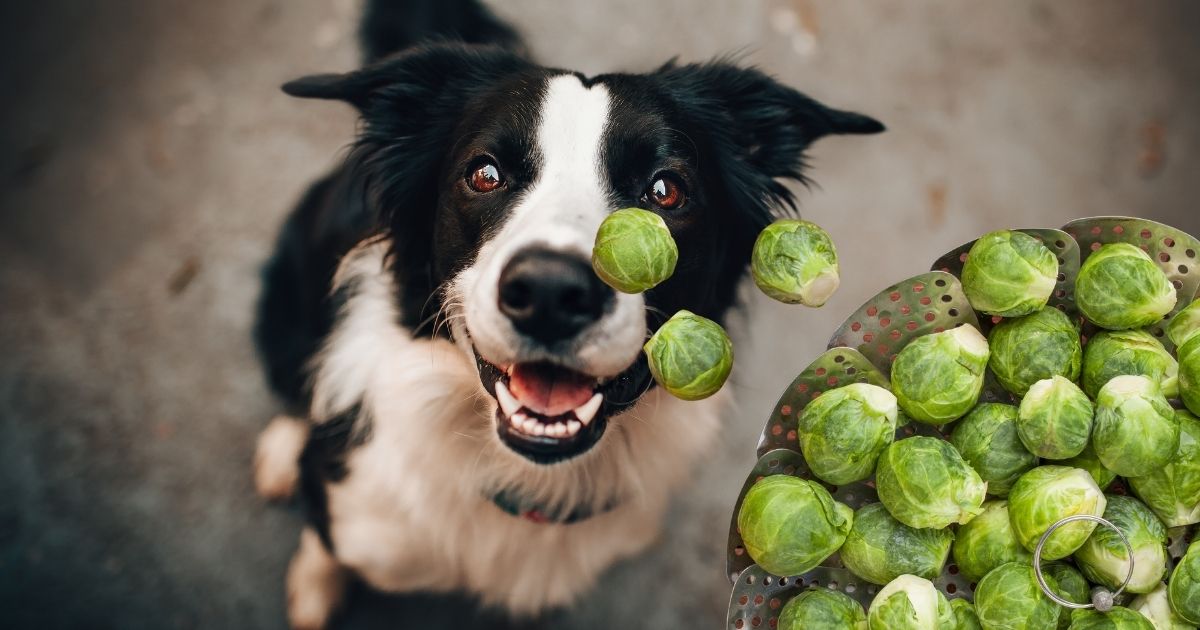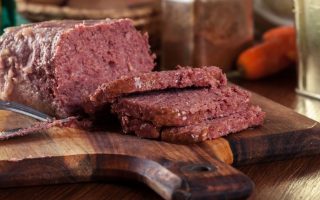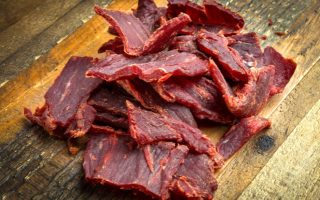Some people go ‘yay’ at the sight of Brussels sprouts, others go ‘yuck’ and will do anything to avoid it.
Whatever group you fall into, you can’t deny the health benefits of this vegetable.
Just as broccoli a day keeps the doctor away, Brussel sprouts is a health booster.
With these in mind, can dogs eat Brussel sprouts and will it improve their well-being?
If you’ve witnessed the numerous benefits, it is normal you’ll want your darling pooch to partake.
However, you may be wondering if feeding your dog Brussels sprouts is a reasonable move.
This is especially concerning as not all vegetables and fruits are good for dogs. Some are downright toxic and may affect your pet.
The AKC confirms this by explaining that “dogs digest foods differently than humans do, and eating the wrong foods can lead dogs to long-term health problems and, in extreme cases, even death.” [1]
Where do Brussels sprouts fall? The good news is, there is nothing toxic in these vegetables that makes them unfit for dogs.
On the contrary, Brussel sprouts have some health benefits. It doesn’t come without some challenges, though.
While you can make it a part of your dog’s diet, bear in mind the possible side effects.
Can Dogs Eat Brussel Sprouts?
The truth is, dogs can eat anything, and only picky breeds will show some restraint.
This is a problem with meals that are unhealthy or toxic, but with Brussel sprouts, you shouldn’t have any issues.
Dogs can eat Brussel sprouts, and you should add them to your pet’s diet.
However, Brussel sprouts should be fed in moderation. Your dog may suffer some uncomfortable effects if he consumes too many.
You may also have some problems if you cook and serve Brussel in a way that is not dog-friendly.
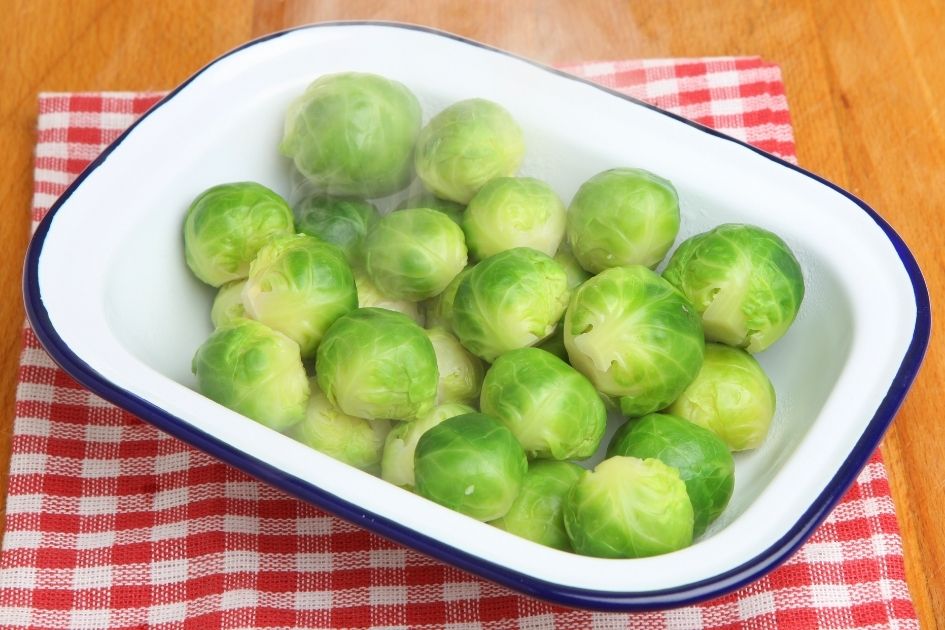
We’ll look into the pros and cons of Brussel sprouts, as well as practical ways to make it safe and enjoyable for your pooch.
Benefits of Brussel Sprouts to Dogs
Brussel Sprouts have many nutrients that help both humans and dogs.
With a heavy dose of vitamins and minerals, it is a formidable natural supplement. It also targets some specific medical complications dogs may face.
Here is the nutritional value of 100-gram Brussel sprouts. We’ll highlight the main nutrients:
- Calories: 43
- Fat: 0.3 g
- Cholesterol: 0
- Protein: 3.4g
- Sodium: 25mg
- Potassium: 389mg
- Carbohydrates: 9g
- Vitamin C: 141%
- Vitamin B6: 10%
- Magnesium: 5%
- Calcium: 4%
The nutritional value of Brussel sprouts shows us why it is edible and healthy for dogs.
With low calories and an absence of cholesterol, obesity is not a risk. Instead, Brussel helps dogs maintain weight and shed off those extra pounds.
The sodium and carbohydrates of Brussel sprouts aren’t high, so your dog may not face digestive complications.
Brussel sprouts have a high percentage of Vitamin C, which improves a dog’s immune system and bones.
It is an antioxidant as well and curbs inflammation in dogs. It also prevents premature aging caused by free radicals.
Other vitamins Brussel sprouts contain are:
- Vitamin B6 that works on the heart.
- Vitamin K that strengthens the dog’s bones.
- Vitamin E also fights against free radicals.
- Vitamin A for better eyesight and proper functioning of the heart and lungs.
Furthermore, Brussel sprouts supply minerals and fiber.
The main minerals in Brussel sprouts are manganese and potassium, both of which work on a dog’s digestive system, nerves, and enzymes. Fiber equally helps in proper digestion.
The final benefit we’ll mention is the presence of kaempferol. Kaempferol acts as an antioxidant in a dog’s body and works against inflammation.
With these numerous gains, Brussel sprouts bring to dogs, you may be itching to make it a prominent part of your canine’s diet.
Before you make that move, consider the dark side.
Cons of Brussels Sprouts to Dogs
The first reason Brussel sprouts should not be fed regularly to a dog is the low level of protein.
Dogs’ main nutrient need is protein, and Brussel sprouts don’t have enough of that.
Another challenge that comes with overfeeding this vegetable is fiber. While fiber helps in the digestion of meals, a dog doesn’t need too much of it.
An overload of fiber leads to constipation, diarrhea and may even cause colon diseases to your pooch.
The major side effect of Brussel sprouts can be summed up in one word: gas.
Brussel sprouts contain a substance named isothiocyanate, which contributes to the dog’s digestive system.
The good work of isothiocyanate leaves an excess of bacteria.
In normal cases, this will only make your dog become an expert at flatulence—with you being the victim.
However, if your furry friend eats a lot of Brussel sprouts, the consequences are more. Diarrhea, stomach pains, and even bloating can result.
That said, the side effects of Brussel sprouts may not land your dog in a hospital bed.
The only exception is if the symptoms persist for long, and this mainly happens to dogs with sensitive stomachs or allergies.
To avoid complications, Brussel sprouts should be fed to dogs as a natural add-on to their main meal. Cooking and serving raw matter too. Failure in these can make a healthy meal unhealthy.
Can Dogs Eat Raw Brussel Sprouts?
Avoid feeding your dog raw Brussel sprouts because of the difficulties dogs have in digesting them.
Can Dogs Eat Cooked Brussel Sprouts?
Yes. Cooked Brussel sprouts are easier for dogs to digest. However, it is better to steam them, rather than cook or microwave.
How to Prepare Brussels Sprouts for Dogs
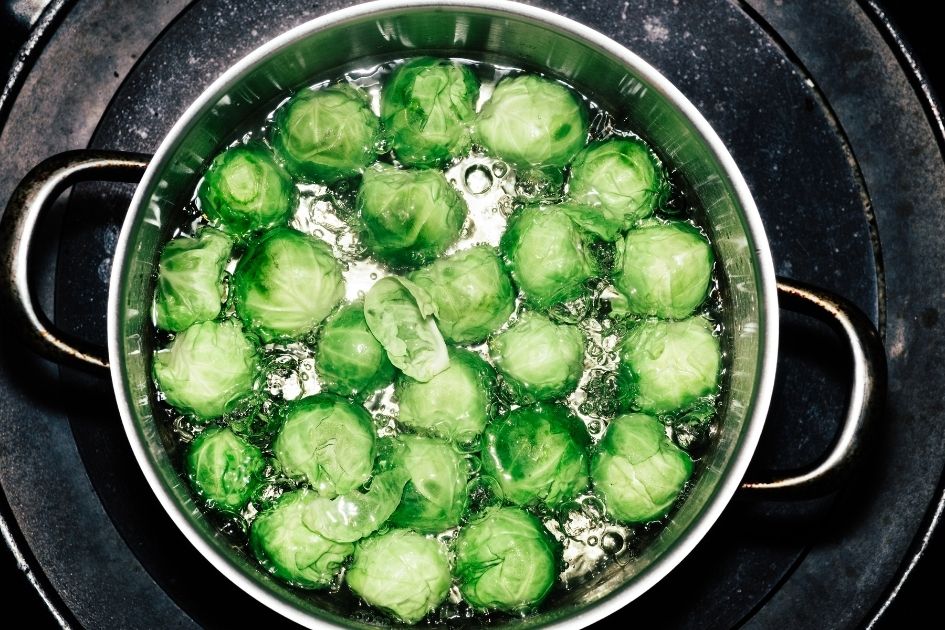
When making this veggie for your animal companion, it is recommended that you steam, boil or put them in a microwave.
Steaming is more ideal because little nutrient gets lost in the process.
For dogs, you don’t need to put in oil, spices, salt, or any other additive.
It is safer to make plain Brussel sprouts as many seasonings and spices are harmful to dogs. Your pet will enjoy it either way.
While getting the raw Brussel sprouts from the store, target the fresh ones. These are more nutritious and beneficial.
Wash them with care once you get back home. Then, separate the leaves from the stems. You don’t need to keep the latter.
After that, you can steam, microwave or boil. Steaming takes about five minutes. In a microwave, six to eight minutes is often enough.
Boiling takes the longest time (ten to twenty minutes) and may remove some vital nutrients.
Keep an eye on the clock while you prepare Brussel sprouts. If you overcook it, you may lose some nutrients. A general rule of thumb is to consider it ready when it gets soft.
How to Serve Brussel Sprouts to a Dog
Don’t force a dog who wouldn’t eat Brussel sprouts to do so. Vegetables aren’t crucial to dogs, so you don’t have to pressure your canine the way you do to your kids with a sweet tooth.
Take a slow approach when introducing your pooch to Brussel sprouts, and gauge their reaction to know if you should proceed.
Canines prone to allergies or have sensitive stomachs should not eat Brussel sprouts until you get a go-ahead from a veterinarian.
If you get approval, then carry on, following the instructions the vet may give.
Serve your dog’s Brussel sprouts according to their size. Generally, ½ sprout or 1 suffices. You can serve brussel sprout to your doggy in many ways:
- Go the direct method and serve it plain: This only works well if your dog can tolerate the taste.
- Add it to his main meal: A hungry dog may not even notice the difference as he gobbles everything up.
- Serve it alongside a cookie: The Brussel sprouts will make the cookie more nutritious.
How about other Vegetables?
We mentioned at the onset that human vegetables can be classified as either safe or dangerous for dogs.
To keep your dog safe, avoid feeding him even a bite of the dangerous vegetables.
The safe vegetables include:
- Broccoli
- Carrots
- Peas
- Green beans
- Spinach
These are harmful to dogs:
- Onions
- Garlic
- Mushrooms
- Asparagus
The safe vegetables should be fed in moderate quantity, like the Brussel sprouts. Most of them come with side effects that should be avoided.
The toxic vegetables shouldn’t be eaten by your dog, even accidentally. They can make a dog vomit, get a stomach upset, or have diarrhea. These are the easy cases.
Harmful vegetables pose even bigger risks to dogs, including the shortage of red blood cells and eventual death.
FAQs
Do Brussel sprouts make dogs fart?
Brussel sprouts contain a substance known as isothiocyanate. This substance is good for your dog’s digestive system, but it has a smelly disadvantage.
Isothiocyanate makes your dog fart, so you may isolate your furry friend for some minutes after a meal filled with Brussel sprouts.
Are cooked Brussel sprouts good for dogs?
Cooked Brussel sprouts contain many nutrients good for dogs. It is also softer than raw Brussel sprouts, making it easier to digest. It is better to steam Brussel sprouts than boil or microwave.
Can dogs eat broccoli and Brussel sprouts?
Broccoli and Brussel sprouts are close cousins under the cruciferous family. They are also safe for dogs but should be consumed in a reasonable quantity.
Is Brussel sprouts toxic?
There are no toxic elements in Brussels sprouts that would make them harmful to dogs. On the contrary, it is beneficial. Though it has its downsides, dogs can eat Brussel sprouts.
The Bottom Line
Are Brussels sprouts safe for dogs? With no harmful ingredients to say otherwise, Brussel sprouts have a positive impact on dogs.
Having said that, it shouldn’t replace the main meal of a dog, nor should it be fed on a regular. Only a moderate amount is necessary.
You May Also Like: Can Dogs Eat Plantains? (Chips, Fried or Boiled)
References:
- Fruits and Vegetables Dogs Can or Can’t Eat – American Kennel Club
- Importance of Antioxidants for Dogs – Care Animal Hospital

